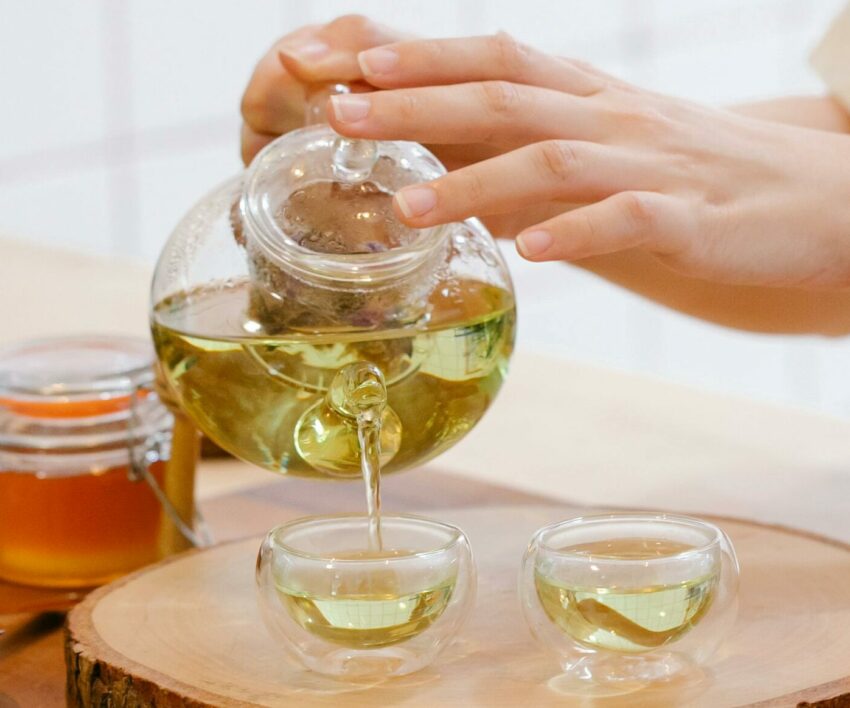
green tea: picture: pexels
Now I know that some of us, have been under that coffee spell for quite a while we can’t imagine a day without it. This is because the aroma on its own is enough to jumpstart your day. But, what if there’s a gentler, healthier alternative that keeps you just as energised without the jitters?
Green tea centuries-old elixir packed with antioxidants, subtle flavours and surprising benefits, can be your new fighter if you’re ready to swap your cup of Joe for a soothing sip that still empowers you. It may not be the ultimate replacement as it may also have its downsides, but it’s a much softer landing.
According to the History of Ceylon Tea publication, a single cup of coffee contains more caffeine than standard tea, depending on the type. Green tea is believed to contain 24 to 45mg and coffee 95 to 200mg. Therefore the publication concluded that switching to green may cause caffeine withdrawal symptoms, but it’s unlikely as the tea still has enough caffeine to soothe cravings.
The above source also mentions that drinking tea with breakfast may reduce iron levels, as a study found a 62% reduction in non-heme iron absorbed from food compared to 35% with coffee. “A study in 1982 found that people who drank tea alongside meals experienced a 62% reduction in the amount of iron they absorbed from their food, as opposed to a 35% reduction with coffee.”
Green tea contains L-theanine, an amino acid related to memory, which helps keep you focused and boosts brain power, claims Coop Sleep Goods. It is further stated that by replacing coffee with green tea for about a month, your skin becomes clearer and clearer, due to the addition of EGCG, a polyphenol that improves acne and reduces sebum production. “Both coffee and green tea contain anti-inflammatory properties and are also great sources of antioxidants, which fight free radicals and help prevent the signs of ageing. With that said, green tea boasts a higher concentration of antioxidants than coffee.”
Also see: Why men should drink green tea
